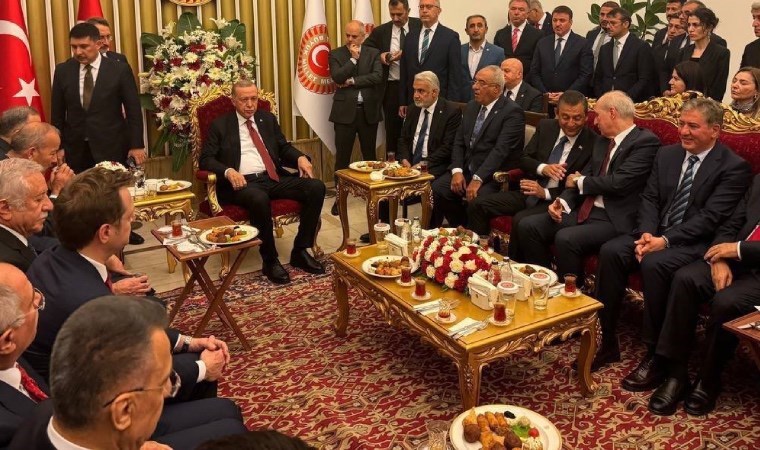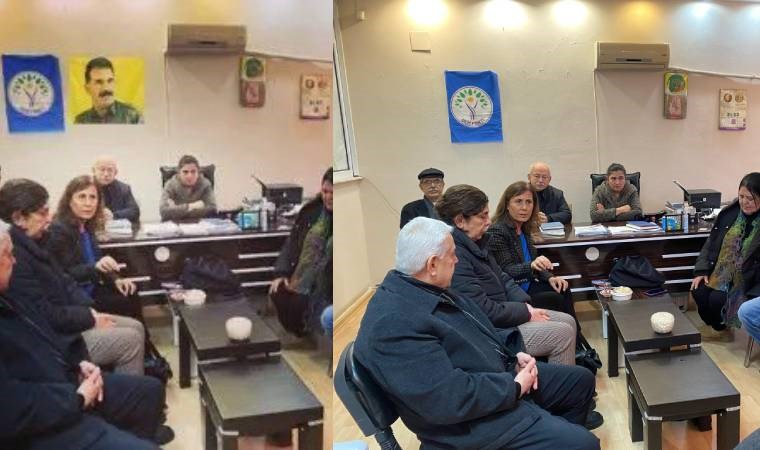Brands are too busy calculating rents to do business
Increased exchange rates have brought their stores to the point of closure. According to United Brands Association Chair Sinan Öncel, brands are too busy calculating rents moment by moment to do business.

Exchange rate volatility has dealt a blow to retailers. Brands in malls where rents are in foreign currency are having a tough time of it. According to United Brands Association (BMD) Chair Sinan Öncel, rents have swollen by more than 240 million lira in the past month due to exchange rates. With Öncel saying, “Brands are incapable of doing anything else apart from calculating rents moment by moment with a calculator in their hands,” stated that brands are seeking solace abroad. I discussed the crisis affecting the retail sector and exit routes with BMD Chair Sinan Öncel.
-The exchange rate has risen a lot. How has this affected your costs?
A very significant portion of costs are foreign exchange indexed. Raw materials are foreign exchange indexed. The raw materials we procure from Turkey are all dollar indexed, too. If you talk about cotton, that is also in dollars. The increased exchange rate has also greatly increased costs. For example, we have bought everything and put together a product for fifteen lira. How much can you sell that to the consumer for? At most twenty-five lira. You can’t sell it for thirty-five lira. Now we cannot sell what we have assembled for seventeen lira for twenty-six lira. There is a ruinous exchange rate here, you see. With this exchange rate it is now impossible to manufacture products at a price the consumer can pay. We no longer have any room. We have no room left to sell goods, to move. The ship’s room for manoeuvre is gradually narrowing.
-What is the manufacturer to do under such circumstances? If they can’t sell what will happen?
Just now manufacturers cannot give a price, for example. They cannot take new orders. They are supplying orders that were previously taken and continue to produce the goods that are on the moving conveyor belt. The moment you speak of the new price, they say, “One minute.”
Passed on in prices
-How long has this been going on?
It’s a situation that started with the rising exchange rate. The retailer will be unable to replace the same product for the same price and costs will rise a bit more. As to how costs will be passed on in prices, it is hard to foresee now. Passing on in a way that makes it impossible for us to sell goods is also unfeasible. This is the negative side to the business. The positive side, however, is that there is an increase in sales to foreigners, especially at points where foreigners are in abundance. They buy exactly the same product that will cost them one hundred euro in Europe for sixty euro in Turkey. It is precisely the time for the consumer to buy until existing stocks are exhausted. If they need them, of course. It would not be a good idea to say borrow and buy, go and pay in instalments by credit card under normal terms.
-You said manufacturers are not taking new orders. The new season is set to start. Is the retailer ready for the season?
Everyone has in fact had their winter goods made. The season will be launched as of 1 September. Goods were continuing to flow in and I estimate that at least half the winter season products have been manufactured.
Stores virtually held hostage
-Is there a mall that has converted to Turkish lira?
There is no such thing as there being Turkish lira in one place and foreign currency elsewhere. The crucial point here is the option of Turkish lira not being available while renting. Now, I come here and am going to rent a store. How much? Five hundred euro. I want to rent in Turkish lira. No, we don’t offer it in Turkish lira. Why not? He tells you he borrowed in foreign currency. Borrowed, you see. Your rent, which was 36,000 lira at the start of the year has now become 62,000 lira in line with the exchange rate. Precisely this ruinous exchange rate. There are those who charge the rent at the daily exchange rate. July rents were charged at 4.60. With August rents, by contrast, the exchange rate went up to 6.50. It’s hard for brands to pay the difference.
-If they can’t afford this aren’t they resorting to leaving malls?
The main problem is that at the time brand rentals were made, the way the economy was moving was conducive for brands to earn money under the prevailing conditions. A company did not sense any negativity at all four years ago and made five or ten-year leases with malls. But, in the intervening time, crises emerged, tourism hit rock bottom and a problem was experienced with Russia. The brand said it wanted to leave the mall. It said it would pay a three-month penalty, too. The mall says, “No. You’ll pay a one-year penalty.” Somebody acting within the bounds of fairness would say, “Yes.” The exchange rate has hit six or seven lira and they still have the same mentality. There are those among them that say if you attempt to leave early they’ll sue you and get a one-year penalty through seizure under a court order. It is this mindset we have issues with. These are not only foreign investors; there are also locals. Many stores are currently hostages in malls. We have applied to the Ministry for it to take measures. Forget reducing rents, just now we are struggling not to shut shop.
-What level is profitability at in the sector just now?
A company that announces pre-tax profits of between ten and fifteen per cent is said to be very successful. Profits are seriously shrinking. Then there are unproductive places draining profit from the productive. For instance, one of my members says they want to open up abroad and need to create funds but they have a hundred odd stores and need to get rid of twenty because they swallow all their profit but if they try to shut them they face massive penalties. I mean, they stand to pay penalties close to 700,000 or 800,000 lira to close a single store.
47-billion-dollar economy
-How high has BMD membership risen to?
We currently have 420 brands.
-What is the size of the economy under your management?
Our members are managing a 47-billion-dollar economy. We have 67,000 domestic sales points. There are one hundred brands’ stores in 108 countries. 350,000 to 400,000 people work in our sector.
We currently wish to focus on branded export. We have also spoken to our Minister of Customs to this end. We absolutely want to send a representative as an association on foreign visits. For example, we are in close contact with the Chinese Ambassador. China is a very important market for us. The Chinese Commercial Consul came to our meeting. It will make two trillion dollars of purchases over five years. We want to get our share of this.
Everyone anxious to close
-Is there a trend in your sector to shut down in Turkey and go abroad?
Yes, there are colleagues who have entirely halted operations in Turkey and gone abroad. Everyone is currently anxious to shut unproductive stores and we are screaming out for this - you know, let’s get out at once because what we are paying every month is a hefty sum for us. In fact, the number one item on our agenda just now is how we can increase our foreign operations, and how those without them can set them up. And the second is how we can invigorate our shopping tourism, because invigorated shopping tourism means a knock-on effect on everyone from the taxi driver to the street snack bar and itinerant salesman.
-What has the number of foreign stores risen to?
It has exceeded 3,500. It will amount to 4,000 at the year end. This trend started in 2016 and is continuing to intensify.
-You spoke of shopping tourism. Is this sector the palliative?
Turkey has currently become an incredibly important shopping paradise. This is an important opportunity. Of course, tourism is a very volatile sector. We must keep our risk in whichever currency we make sales in.
-Certain foreigners who entered the Turkish retail sector have withdrawn from the market. Will withdrawals from Turkey continue?
First, they were unable to compete with Turkish brands and, secondly, custom duties have increased excessively. Thirdly, having few stores, they were unable to manufacture in Turkey. With stiff duties imposed on imports and the exchange rate also increasing greatly, they had to withdraw. If companies that make very original products and lack demand elasticity now come, they have no chance of remaining on their feet.
Pegging in the TRNC
-Foreign exchange rents in malls is something you have constantly criticised. Have you had discussions with the Mall Investors Association at a time when the exchange rate has risen so much?
We have had no communications for a long time. It has been impossible to achieve a step, a millimetre of progress through speaking. We do not reproach the colleagues there, either. It is not a matter that is in their hands. The management of malls owned by foreign funds is abroad in its entirety. Management here is coloured by positive or negative attitudes emanating from abroad.
-What do you want? Should rents be converted to Turkish lira?
Nobody is anxious for anything like conversion into Turkish lira. We want a tolerable rent/turnover ratio. Last week in the Turkish Republic of Northern Cyprus the dollar was pegged at 3.8 and the euro at 4.6 in foreign exchange leases. We expect a pegging of this nature.

En Çok Okunan Haberler
-
 THY krizi büyüyor
THY krizi büyüyor
-
 Erdoğan, Özgür Özel ile bir araya geldi!
Erdoğan, Özgür Özel ile bir araya geldi!
-
 Benjamin Brand kimdir? Benjamin Brand hangi okul mezunu?
Benjamin Brand kimdir? Benjamin Brand hangi okul mezunu?
-
 İsmailağa ikiye bölündü!
İsmailağa ikiye bölündü!
-
 Rıdvan Dilmen'den penaltı ve şampiyonluk yorumu
Rıdvan Dilmen'den penaltı ve şampiyonluk yorumu
-
 Cumhurbaşkanı Başdanışmanından provokasyon!
Cumhurbaşkanı Başdanışmanından provokasyon!
-
 Vali koltuğuna oturan öğrencinin sözleri gündem oldu
Vali koltuğuna oturan öğrencinin sözleri gündem oldu
-
 Bakanlık, Müge Anlı'daki yayını ihbar kabul etti
Bakanlık, Müge Anlı'daki yayını ihbar kabul etti
-
 Oya Tekin’den Cumhurbaşkanı Başdanışmanına tepki
Oya Tekin’den Cumhurbaşkanı Başdanışmanına tepki
-
 Kulüpler Birliği ile TFF arasında gergin toplantı!
Kulüpler Birliği ile TFF arasında gergin toplantı!
















